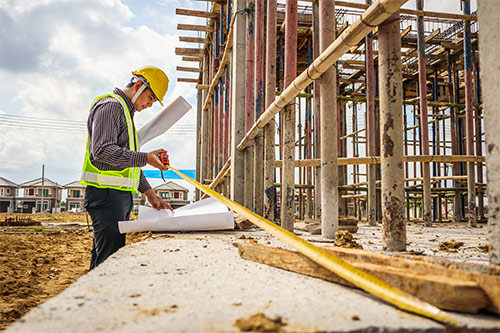Why You Should Never Cut Corners During Home Construction
Whether it’s because they underbid a project or have over-aggressive timelines, builders often face significant pressure to complete projects quickly at minimal cost. Unfortunately, some choose to do this by cutting corners as much as possible, perhaps it’s safety compromises, material substitution, poor workmanship or insufficient oversight. In addition to negatively impacting a potential buyer, substandard home construction can lead to unexpected costs, while jeopardizing a home construction company’s reputation and long-term viability.
Why Builders Shouldn’t Skimp
Every residential construction company wants to optimize productivity and minimize costs. When they do it by cutting corners, however, the following tends to happen:
They get caught. In a recent advisory to construction firms, the U.S. Department of Labor detailed its extensive efforts to identify and litigate instances in which construction shortcomings jeopardize worker safety. When found liable, companies have had to pay hundreds of thousands of dollars in fines. This doesn’t even begin to account for the total costs, however. If a worker on your crew gets hurt, you could end up having to declare bankruptcy if you lose a costly civil case. Even if you’re lucky enough to avoid injuries, you could still face substantial fines from the government, which encourages workers to file online complaints if they believe there is a serious hazard at a job site, or if an employer is not adhering to Federal Occupational Safety and Health Administration (OSHA) standards.
They might not get certified. Depending on your location, you may need to hire local certifiers, who will monitor your construction activities to make sure they are being done in accordance with the relevant local building codes and regulations. If you decide not to take their recommendations because you don’t want to incur extra costs, you may find out the structure doesn’t meet minimum standards. If this occurs, you will have to work hard to get the certificate you need to confirm that the home is safe to reside in. You may then have to extend the length of your construction project to make required changes. This could be extremely time-consuming and costly, especially if you have to delay other projects on your schedule.
It costs them more down the line. Some of your cost-saving measures could actually lead to greater losses. For instance, if you choose to install a house’s plumbing system yourself instead of hiring an experienced, qualified plumber, you could end up with system failures that could ultimately cause wood-decay, structural problems and mold. Likewise, if you choose to opt for very cheap, low-quality flooring materials, they could deteriorate rapidly when exposed to foot traffic. If this happens, you would likely end up having to replace the materials just a few months after installation.
Word spreads. Even if you are able to get away with cutting a few corners in the short-term, you will likely pay in the long run. Word of mouth can be a powerful force in the real estate business. If a past client comes to discover you cut corners, you can bet they will be more than eager to spread the word. They may even file formal complaints which will be attached to your company’s name for as long as you do business. When it comes to getting consistent jobs, your reputation is everything. Be sure to protect it by doing honest, quality work in accordance with all the relevant local building codes and regulations.
Learn how you can protect your business and add valuable selling points to your new builds with 2-10 Structural Warranties.








